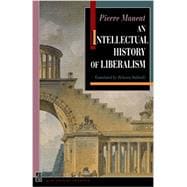
Note: Supplemental materials are not guaranteed with Rental or Used book purchases.
Purchase Benefits
What is included with this book?
| Foreword | |
| Preface | |
| Europe and the Theologico-Political Problem | p. 3 |
| Machiavelli and the Fecundity of Evil | p. 10 |
| Hobbes and the New Political Art | p. 20 |
| Locke, Labor, and Property | p. 39 |
| Montesquieu and the Separation of Powers | p. 53 |
| Rousseau, Critic of Liberalism | p. 65 |
| Liberalism after the French Revolution | p. 80 |
| Benjamin Constant and the Liberalism of Opposition | p. 84 |
| Francois Guizot: The Liberalism of Government | p. 93 |
| Tocqueville: Liberalism Confronts Democracy | p. 103 |
| Conclusion | p. 114 |
| Notes | p. 119 |
| Index | p. 125 |
| Table of Contents provided by Publisher. All Rights Reserved. |
The New copy of this book will include any supplemental materials advertised. Please check the title of the book to determine if it should include any access cards, study guides, lab manuals, CDs, etc.
The Used, Rental and eBook copies of this book are not guaranteed to include any supplemental materials. Typically, only the book itself is included. This is true even if the title states it includes any access cards, study guides, lab manuals, CDs, etc.